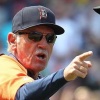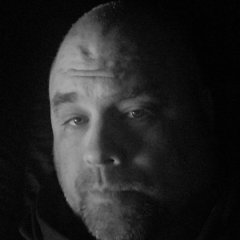Leaderboard
-
in all areas
- All areas
- Images
- Image Comments
- Albums
- Album Comments
- Files
- File Comments
- Events
- Event Comments
- Blog Entries
- Blog Comments
- Topics
- Posts
- Articles
- Article Comments
- Help Files
- Videos
- Video Comments
- Players
- Player Comments
- Players
- Player Comments
- Rumors
- Rumor Comments
- Guides
- Guide Comments
- Players
- Status Updates
- Status Replies
-
Custom Date
-
All time
July 26 2014 - June 9 2025
-
Year
June 9 2024 - June 9 2025
-
Month
May 9 2025 - June 9 2025
-
Week
June 2 2025 - June 9 2025
-
Today
June 9 2025
-
Custom Date
10/22/2017 - 10/22/2017
-
All time
Popular Content
Showing content with the highest reputation on 10/22/2017 in all areas
-
Concur. The story last winter was Dozier had a career year, and couldn't produce similar stats. Now there's 3 years of data showing he can be a ~30 HR hitter and 2 years of an OPS north of .850. Even if the contract is one less year, he answered a lot of questions whether or not 2016 was for real.2 points
-
Article: The Brian Dozier Trade That Almost Was
sploorp and one other reacted to gunnarthor for a topic
It's a "win" because the Twins didn't sell Dozier for 60 cents on the dollar. They could still trade Dozier (or a different MI) this year and get a better offer. If they had moved Dozier, they (likely) couldn't have. I'd also point out that the Yankees ace couldn't make it out of the first inning. Pitching is rough all around. Kyle Gibson would have been arguably the Angels best pitcher last year. So while the back of the rotation isn't set and the front doesn't have a true ace, we do have pieces in place and the ability to get something in free agency as well (or through a trade).2 points -

Article: The Brian Dozier Trade That Almost Was
sploorp and one other reacted to Brock Beauchamp for a topic
Yes, this. As I said at the time of the trade discussions, maybe De Leon isn't an injury risk... or maybe he is. But he gets a knock for never pitching more than 115 innings in a season and this season was even worse. If he was in the Twins org right now, people would be screaming bloody murder, and rightly so. All pitching prospects are questions marks. Pitching prospects who have barely crossed a half season of MLB innings at age 25, even moreso. Remember that De Leon is one year older than Berrios except the Minnesota Jose has pitched more than 115 innings four times in his career (and came close a fifth year).2 points -
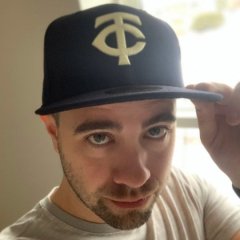
Article: Do The Twins Need A Proven Closer?
glunn reacted to Nick Nelson for a topic
Last week, the Minnesota Twins announced that they would not be activating the contract option for Glen Perkins, making him a free agent. Matt Belisle will soon join him. At that point, the Twins will have a total of three major-league saves on their entire roster (one apiece for Trevor Hildenberger, Tyler Duffey and Gabriel Moya). If experience is at all a weighty factor for this team, then we have a pretty clear idea of what they'll be looking for on the relief market.The 2017 Twins season was, in some ways, a banner example of the closer label's fungibility. In the past, Minnesota has been guilty of vastly overrating the importance of ninth-inning experience, to its own detriment (*coughMATTCAPPScough*). But this past season, we saw Brandon Kintzler, a veteran with zero career MLB saves prior to overtaking the role midway through 2016, excel as an extremely reliable door-slammer. He converted 28 of 32 saves and made the All-Star team before being traded to Washington. Good reliever = fine closer. After Kintzler went to the Nationals, Belisle took over in the ninth. The 37-year-old had never in his career served as a regular closer. During the final two months, he converted nine of 11 saves. Good reliever = fine closer. These instances seem to confirm something most of us already knew: there's nothing supernatural about pitching in the ninth inning. And with this in mind, the urgency of adding a reliever with such experience during the offseason is lowered. The Twins have at least one player who could plausibly open the 2018 season as closer, with others in line to get a shot in the near future. Download attachment: CTA-Banner.jpg READY NOW? Trevor Hildenberger: Hildenberger was fantastic as a rookie in 2017, with his stellar mix of strikeouts and grounders proving extremely reliable. He rose to the occasion time and time again in big spots. He got both righties and lefties out. And he has plenty of experience closing in the minors. But he's also 26 with only 42 innings logged in the big leagues. This, too, is problematic: pigeonholing him in the ninth stops him from being available to Paul Molitor in those key mid-game high-leverage spots where Hildenberger was a godsend this year. I'm not sure you can make a strong case for anyone else internally being ready to take on the closer job now. But as soon as mid-season in 2018, several others could emerge as legit options. READY SOON? Tyler Duffey: The 2017 season was a frustrating one for Duffey, who flashed overpowering stuff at times and posted solid peripherals (3.72 FIP) but could never get into a prolonged groove in terms of results. It's important to remember, though, that he hadn't previously pitched out of the bullpen since 2013 and was in the Twins rotation mix all the way up until the end of spring camp. If he prepares for 2018 as a reliever, and comes back with an extra tick or two on his fastball to complement his power curve, he's certainly got the makings of a closer. He was a dominant one in college at Rice University. JT Chargois: Duffey's co-closer at Rice has been on the path to a late-inning role in the majors ever since being drafted, and looks to me like a closer in waiting. He has the pedigree and potency, no doubt. But he lost almost his entire 2017 campaign to an elbow injury, so he'll need to come back and prove himself effective before any kind of high-leverage assignment is on the table. Ryan Pressly: It was a weird year for Pressly. You look at so many elements of his game and see the profile of someone who could close. His fastball burns in at 96 with a complementary slider at 90. His 3.2 K/BB ratio, 1.16 WHIP, and 50% grounder rate all signaled a quality bullpen weapon. If he could translate his second-half performance (2.62 ERA, .582 opp OPS) over a full season he'd be a perfectly suitable closer. But he's gotten in his own way too often to be counted on. A sustained run of setup excellence in April and May next year could change the narrative. Gabriel Moya: Acquired for John Ryan Murphy in a late-July trade, Moya had a phenomenal season closing at Double-A, saving 24 games with a 0.77 ERA and 0.77 WHIP, plus a 13.4 K/9 rate. The stuff played in his first taste of the majors, producing a 12.4% swinging strike rate (tied with Pressly for highest in pen) and holding opponents to a .206 average, albeit in a small sample of seven appearances. He performed very well against righties. Moya is definitely a sleeper for the gig but won't be in the mix until midseason. Tyler Jay: The true sleeper in this discussion. Like Chargois, Jay endured a lost season in 2017, but now he's back in the Arizona Fall League and proving he's healthy. After dealing with shoulder and neck issues again this summer, there were rumblings he'd need thoracic outlet surgery, but has repeatedly tested negative for that condition. Like Chargois, he has the stuff and pedigree; it's just a matter of staying healthy and showing what he can do. FINDING A PLUG The six players listed above are realistic candidates to be good relievers, and as our earlier arithmetic suggests: Good reliever = fine closer. But no matter how much you want to downplay it, there is an added element when it comes to pitching in the ninth. There's unique pressure as a hurler faces the reality that small mistakes can turn a win into a loss very quickly. Any team, especially one with an offense like Minnesota's, can bounce back from a bullpen hiccup in the middle innings. When you're at the very end of the game? Not so much. Kintzler and Belisle converting a combined 86% of their save chances is an underrated factor in Minnesota's 2017 success, and the Twins need to try to replicate that efficacy in late lead protection. While neither Kintzler nor Belisle had history as a closer, or even a particularly dominant relief pitcher, they did have this arguably essential attribute: lots of experience in the big leagues. So if the Twins want to hold off on anointing one of the relatively inexperienced relievers as closer, it would make sense to find at least an interim veteran plug. Ideally, they'd do so without paying the premium for closer experience. Who on this year's market could be the next Kintzler? In our upcoming 2018 Offseason Handbook (preorder now!), we lay out the free agent reliever landscape. Wade Davis, of course, sits at the top of the pack, and is really the only bona fide "Proven Closer" in the group. Others like Seung-hwan Oh and Fernando Rodney have the experience but are somewhat shaky bets. These are some names that catch my eye as I survey what's going to be out there: Brandon Kintzler, RHP: If you're looking for a Brandon Kintzler type, you could always sign... Brandon Kintzler. The Twins will have an opportunity to re-sign the 33-year-old right-hander after sending him to Washington for the final two months of the season. He's familiar and well liked in the clubhouse. But they'd also be buying high on a guy coming off his best MLB season – also a season where his 4.9 K/9 rate ranked third-lowest out of 155 qualified relievers. Steve Cishek, RHP: Cishek has a very similar profile to Hildenberger. He's a right-handed sidearmer who gets lots of ground balls and strikeouts. He has been a very consistent performer over the course of his career, with an ERA+ of 109 or above in each of his seven seasons. Though he served exclusively in a setup role for the Mariners and Rays this year, the 31-year-old has plenty of closing experience with 121 saves and an 83% conversion rate in the big leagues. The distinguished track record will make him a pricey commodity. Jake McGee, LHP: There are many things to like about McGee. He's a strikeout pitcher with excellent control (four times as many K's as walks in his career). He's a left-hander who shuts down righties. He has experience in the ninth inning (44 saves), as well as in the playoffs (six postseason appearances). He's been durable and fairly reliable. It'd take a sizable multi-year deal to get him, but the 31-year-old could be a great veteran anchor in a young bullpen going forward. Luke Gregerson, RHP: Over the course of his career – spent with the Padres, A's and Astros – Gregerson has mostly been a fantastic reliever. But he's coming off his worst season, so it's possible he could be had at a relative discount. In the Offseason Handbook, we suggest Gregerson could be viewed as a "rich man's Belisle." He's got tons of experience (623 MLB appearances) and has a rep as a strong clubhouse guy, but he also has been much better all-around, and gets tons of strikeouts with a heavily deployed slider. Koji Uehara, RHP: It's entirely possible that Uehara decides to hang up the cleats. He turns 43 next April, and had the second half of his 2017 season ruined by knee and back issues. But if he wants to give it one more go, he'd be a welcome addition for the Twins on a one-year deal. When healthy, he's as reliable as they come, and was lights-out in the first half this year. He could hold down the closer role until one of the young guys emerges. What's your view of the closer situation as we head into the offseason? Are you comfortable with an internal option? Would you aim high for a name like Wade Davis? Or does one of the other free agents listed (or another) make more sense to you? Click here to view the article1 point -

Article: Do The Twins Need A Proven Closer?
tvagle reacted to Deduno Abides for a topic
I believe the Twins have been successful with acquisitions of four proven closers: Reardon, Perranoski, Worthington and Marshall, although Marshall was acquired off the scrap heap and costs were relatively low for the other three (Perranoski with Roseboro and another reliever for washed up Mudcat Grant and Zoilo Versalles was the biggest trade, and probably a steal; Reardon was acquired for bench players and Worthington was purchased for cash). Otherwise, acquisitions have a spotty history (Granger, Davis and Capps being good examples), especially when compared to pitchers getting their first chances with the Twins (Nathan, Aguilera, Perkins, Guardado, Campbell, Corbett, Johnson, Kintzler). The Twins need to improve their bullpen, but it may be an area for economizing. In addition to the names in Nick’s article, Fernando Romero could be worth considering. Also, for Nick’s sake, maybe Ricky Vaughn would be willing to follow Falvey from Cleveland.1 point -
I would be surprised if they didn't resign Kintzler next year. He likes it in Minnesota and i could see them working out a 2 year with option or 3 year contract. If they can get Belisle on a 1 year deal again for around 3.5 to 4 million I would do that. But in all seriousness, the Twins do need to sign a second reliever. I do like the idea of signing Wade Davis and using Kintzler as a set up man. That gives 3 different looks from Hildenburger the side armer to Kintzler the ground ball machine to Davis who overpowers hitters. then we just need a good lefty. (Tyler Jay.....)1 point
-
Curtiss? Busenitz? Would like to see Kintzler back but not for 3 years and preferably not for 2. Pay him big for one year. He's earned it for us at least.1 point
-
Unless they sign a closer with several years of closing experience, I hope they sign an experienced reliever or two, and they should be competing for the closer spot next spring with all the internal options you listed. The quality of pitching from Hildenberger, Busenitz, and Moya in their MLB debut seasons was reassuring as we head toward spring training next year. (hopefully not so reassuring that they don't sign any bullpen arms at all)1 point
-
I think the Twins need some bullpen flexibility. Kintzler appears to be able to work middle relief and step in to take over the ninth inning in case of extended ineffectiveness by whomever is tagged as the ninth inning guy. So, I think Kintzler should receive serious consideration. And, Kintzler now has a valuable commodity: post-season experience.1 point
-
Article: Do The Twins Need A Proven Closer?
glunn reacted to kellyvance for a topic
Some guys are better at starting an inning fresh than coming in with men on and a high leverage deal. Stats only go so far. I think there will be some thought given to getting a guy who has ice water in his veins. Anybody know a good stat approach for guys who shut the door in a two on situation? I don't think WHIP tells you enough.1 point -
While I agree that closing out the ninth inning has been somewhat overrated through the years, it's not nothing. Pitchers are not ordinarily thrown into the ninth at random, therefore what you are seeing is a combination of ability and the manager's attempt to choose the right guy for the role. It's a bit of a circular argument. Moreover, not every attempt works. Ron Davis would be an example of Good Reliever != Fine Closer. (Granted that Davis was a better closer than he's sometimes given credit for. But you don't want your closer weeping in the locker room after another tough loss.)1 point
-
Once again - How other teams did it isn't really relevant unless you are playing for 3-4 years down the road? You have to assess where the Twins are right now and what is possible to be done in this offseason to improve the Twins without totally mortgaging the future. Right now the Twins have a very shaky rotation with some very good but not great pitching prospects hitting AAA. We could get lucky and find a #3/4 next season or they could initially struggle for a year or two in the MLB like many rookies do. The reasonable upside of the pitchers is 'mid-rotation' although Romero has higher upside but considerably higher risk (injury or bullpen move). If your answer in this thread is 'to develop the pitching rotation' then we might have to rebuild in a couple of years as the current team's core starts getting close to FA and the rotation continues to hold the team back. Signing/trading for a high upside but struggling arm (like Arrieta or Bauer) is great but this approach typically results in a getting a pitcher that continues to struggle and the continued blow-ups hurt the team. If it was easy to find an Arrieta then every team would have one. This should be viewed as a 'great if it works but not a significant part of then plan' option. Signing/Trading for FA's is where this team is at. They absolutely need to add 1 (and depend on Gibson again next year) or 2 arms this offseason. There are options but ALL of them have negatives. Even Darvish. He has pitched A LOT and has had TJ recently. I think his payday goes higher than the mentioned 6/152 prediction. At some point people are going to need to actually name their preferred option and not just use a general: sign Darvish or develop better pitchers or find a diamond in the rough like Arrieta. None of those options are likely to help for next season. I like potential for a Cole trade as structured in the other thread. I could live with Lynn as a fallback option and he would probably be my #3-5 pitching target this winter. Where does Chatwood fit into this? I see him as a riskier option that would be an alright second signing but I am inclined to roll the dice with Gibson (and his late season improvement) and Mejia in the #4/5 slots personally. Not excited about that but take note that there would be a bigger signing/trade in the rotation in this scenario. If Chatwood is the best addition to the Twins rotation then my entire hope for the 2018 season is going to be based on the rotation WAY OUTPERFORMING expectations. Either Gibson or Chatwood pitch according to their Aug/Sept or road splits or Gonsalves/Romero are dynamite callups to replace whoever is struggling. This better not happen.1 point
-
Article: Supplementing the Twins: Lance Lynn
Richie the Rally Goat reacted to kab21 for a topic
I think one of the starters in this scenario would have to be acquired via trade with a salary <10M/yr. I can't see the Twins adding 35-50M/yr in salary for two pitchers. And as much as I want to say that Darvish should be signed, it will likely cost 30m/yr for 5-6 years to get it done. I certainly won't complain if that happens but I consider it very unlikely and the Twins should have a plan B that is essentially plan A for the offseason.1 point -

Article: Diving Into The Offseason: A Sano Extension?
gunnarthor reacted to SwainZag for a topic
Lock him up. The risks outweigh the rewards by going year to year. All it would take 1 year in the next 3 for Sano to harness his potential and put up 50 HR, 130 RBI with a .380 OBP and OPS of .900 for his price to go up dramatically. Health will always be a concern, but we should all know players of his talent don't come along very often.1 point -
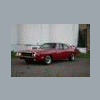
Article: The Brian Dozier Trade That Almost Was
diehardtwinsfan reacted to 70charger for a topic
As long as the loss would be to Houston...1 point -
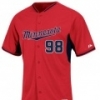
Article: The Brian Dozier Trade That Almost Was
Doctor Gast reacted to Thrylos for a topic
Unless you really know who was on the table, you cannot judge a non-made trade. Let's say that the Dodgers, in addition to DeLeon, to sweeten the trade they wanted to throw in a journeyman infielder to play second base for the Twins, named Chris Taylor; if that were the case, I'd say that the Twins were the losers in this non-trade. You never know unless you know all the names discussed and what the final offer was.1 point -
These actions can be complementary rather than mutually exclusive.1 point
-
Article: Supplementing the Twins: Tyler Chatwood
kab21 reacted to Mike Sixel for a topic
What's your realistic suggestion, then? Because they are not winning the Darvish bidding war.1 point -
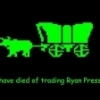
Article: Supplementing the Twins: Lance Lynn
RaoulDuke reacted to nicksaviking for a topic
There were plenty of us saying that Santana had no business taking the mound in Yankee stadium for the WC game well before it took place. It's a different game, the Yankees and the Astros are going to get their HR, it's pretty unavoidable, so you have to take the free unproductive outs that they're willing to sacrifice to get their bombs. Maybe there was a day when a rotation full of Santana's could hold their own and win a playoff series if they were lucky, but that day is not today. I don't know how anyone could watch baseball this year and not see that. The top eight teams by K% all made the playoffs and the other four AL playoff teams were all top five. It's an arms race and the Twins are way behind. They need high upside, not high floor.1 point -
Article: Supplementing the Twins: Lance Lynn
SwainZag reacted to gunnarthor for a topic
Sure they could. They'd probably win several. It's funny. Anytime a Twins pitcher doesn't do well in the playoffs it's because he doesn't strike out enough guys (even though our soft tossing guys did pretty well) and when other teams strike out pitchers get blown out, it's not a problem. Twins need good pitchers. Good pitchers come in many different forms. Sure, the best pitchers tend to be strike out pitchers but that doesn't mean only strike out pitchers are good. And strike out pitchers are expensive. I'm not saying we should ignore that, of course. But if we could get a Dallas Kuechel or two, that'd be just fine.1 point
-
Recent News
-
Recent Blog Entries
-
Recent Status Updates
-
I really hold back what I would like to say about then payroll arguments here. The fact that people don't accept the amount taken in dictates the amount going out requires one of two things. Extreme financial ignorance or fanatical bias that prevents the acceptance of something some basic. I did not change the argument. It's the same idiocy over and over. Do you really want to be on the side that suggests revenues does not determine spending capacity?· 0 replies
-
Popular Contributors
-
Who's Online (See full list)
- There are no registered users currently online


